Doing Biblical Masculinity Studies as Feminist Biblical Studies? Critical Interrogations
Published: Oct 2023
£60.00
This anthology presents a collaborative interrogation at the intersection of feminist biblical studies and biblical masculinity studies. The included essays make a compelling case for both feminist and masculist readers to recognize the advantage of engaging with each other. As they join forces, they produce research that not only brings female characters, gender issues or queer interpretation histories to the forefront but also interrogates critically male characters as well as androcentric and heteronormative conventions, viewpoints and norms. Connections to geopolitical, ethno-religious and other intersectional issues are part and parcel of the diverse range of approaches.
As a whole, then, the book expands the scholarly discourse from essentializing attention on ‘women’ or ‘men’ to a multifaceted (de)construction of gender that exposes gendered structures of domination in comprehensive ways. The shared goal is to halt reactionary gender discourses and to foster intersectional comprehension of texts and scholarship. Theoretical, historical, contemporary and textual considerations underscore the methodological, hermeneutical and exegetical value of this kind of work.
The volume is organized into three main parts. First, ‘Theoretical Considerations’, presents two essays illuminating meta-level assumptions and developments when biblical scholars embrace the interrelationship of feminist and masculinity studies in their work. Second, ‘Historical and Contemporary Considerations’, contains three essays examining the Bible in past and present cultural contexts. Third, ‘Textual Considerations’, features four essays focusing on specific passages with lenses informed by masculinity and feminist studies. All nine essays, and the three responses addressing them, invite readers to understand, critique and interrupt phallogocentric assumptions in texts, interpretation histories, and research of the Hebrew Bible.
Doing Biblical Masculinity Studies as Feminist Biblical Studies? Critical Interrogations
£60.00
This anthology presents a collaborative interrogation at the intersection of feminist biblical studies and biblical masculinity studies. The included essays make a compelling case for both feminist and masculist readers to recognize the advantage of engaging with each other. As they join forces, they produce research that not only brings female characters, gender issues or queer interpretation histories to the forefront but also interrogates critically male characters as well as androcentric and heteronormative conventions, viewpoints and norms. Connections to geopolitical, ethno-religious and other intersectional issues are part and parcel of the diverse range of approaches.
As a whole, then, the book expands the scholarly discourse from essentializing attention on ‘women’ or ‘men’ to a multifaceted (de)construction of gender that exposes gendered structures of domination in comprehensive ways. The shared goal is to halt reactionary gender discourses and to foster intersectional comprehension of texts and scholarship. Theoretical, historical, contemporary and textual considerations underscore the methodological, hermeneutical and exegetical value of this kind of work.
The volume is organized into three main parts. First, ‘Theoretical Considerations’, presents two essays illuminating meta-level assumptions and developments when biblical scholars embrace the interrelationship of feminist and masculinity studies in their work. Second, ‘Historical and Contemporary Considerations’, contains three essays examining the Bible in past and present cultural contexts. Third, ‘Textual Considerations’, features four essays focusing on specific passages with lenses informed by masculinity and feminist studies. All nine essays, and the three responses addressing them, invite readers to understand, critique and interrupt phallogocentric assumptions in texts, interpretation histories, and research of the Hebrew Bible.
Violent Biblical Texts: New Approaches
Published: Oct 2022
£70.00
This volume is one of the fruits of a series of international conferences held at the Centre for the Study of Bible and Violence, Bristol. The thirteen articles included here have been assembled for the specific purpose of offering explicitly religious perspectives on biblical violence from a globally diverse group of Christian scholars.
Each author faces the challenge of how to interpret violent biblical texts in ways that remain situated within a Christian construct of the Bible. These raise major challenges—via ethically confounding texts—to providing a theologically coherent interpretation of biblical violence. Each writer, in turn, offers creative and constructive ways forward in dealing with the most problematic biblical material, based on two criteria:
• addressing a particular text or hermeneutical issue in view;
• advancing an approach that is applicable to other biblical texts.
The hermeneutical approaches are neither naïve nor sceptical but rather seek to off er innovative and fruitful avenues for interpreting the text from within the Christian religion.
This book offers a variety of resources to aid the interpretation from within a specifically Christian frame of reference. Of particular note is the round-table discussion, where three leading scholars in the study of the Canaanite conquest (Paul Copan, David Firth and William Ford) dialogue with one another on the subject, in a conversation moderated by Helen Paynter.
Violent Biblical Texts: New Approaches
£70.00
This volume is one of the fruits of a series of international conferences held at the Centre for the Study of Bible and Violence, Bristol. The thirteen articles included here have been assembled for the specific purpose of offering explicitly religious perspectives on biblical violence from a globally diverse group of Christian scholars.
Each author faces the challenge of how to interpret violent biblical texts in ways that remain situated within a Christian construct of the Bible. These raise major challenges—via ethically confounding texts—to providing a theologically coherent interpretation of biblical violence. Each writer, in turn, offers creative and constructive ways forward in dealing with the most problematic biblical material, based on two criteria:
• addressing a particular text or hermeneutical issue in view;
• advancing an approach that is applicable to other biblical texts.
The hermeneutical approaches are neither naïve nor sceptical but rather seek to off er innovative and fruitful avenues for interpreting the text from within the Christian religion.
This book offers a variety of resources to aid the interpretation from within a specifically Christian frame of reference. Of particular note is the round-table discussion, where three leading scholars in the study of the Canaanite conquest (Paul Copan, David Firth and William Ford) dialogue with one another on the subject, in a conversation moderated by Helen Paynter.
Reading the Magnificat in Australia: Unsettling Engagements
Published: Nov 2020
£70.00
Biblical songs have multiple afterlives. In a history of invasion, their reverberations are poignant. What is now called Australia is a continent of many First Nations where Country has been sung for tens of thousands of years before the Bible arrived as part of the cultural cargo of the colonisers. Reading the Magnificat in Australia focuses on one text, Mary's Magnificat, around two thousand years old in its Lukan form, and carrying Hebraic traditions some thousand or more years older. First Nations traditions are older still.
In this colonial context, the Magnificat inspired settler-migrant writing, composition and art. Reading the Magnificat in Australia is a settler reading, but not a conventional one. It offers a performative, conversational reading trajectory that places instances of cultural reception of the Magnificat in the context of colonial occupation of Country, the problematics of whiteness, and the ensuing hiatuses for settler biblical scholars in Australia.
Reading the Magnificat as a song of protest, placed in the mouth of a young Jewish woman of the first century ce, Anne Elvey sketches a counter-colonial reading practice that in compassionate grief and hope is attentive to the ecological trauma of our time. The readings engage with creative responses to the Magnificat, from pious verse to abstract expressionist art, and include a number of the author's creative engagements in response. Grounded in feminist and ecological approaches, Reading the Magnificat in Australia employs hermeneutics of restraint, intertextual engagement and creative witness, rereading the biblical text in relation to contexts of conflict, intersections of race, gender, species and sexuality, constructive and deconstructive materialities in colonised space, and finally the song of birds (of which the Australian magpies on the front cover are an emblem). This listening again to an ancient text reimagines an aesthetics of reading-as-writing that opens to a situated and unsettled praxis, where the Magnificat points inward to its material contingency as a colonial artefact and outward toward contemporary songs of protest.
Reading the Magnificat in Australia: Unsettling Engagements
£70.00
Biblical songs have multiple afterlives. In a history of invasion, their reverberations are poignant. What is now called Australia is a continent of many First Nations where Country has been sung for tens of thousands of years before the Bible arrived as part of the cultural cargo of the colonisers. Reading the Magnificat in Australia focuses on one text, Mary's Magnificat, around two thousand years old in its Lukan form, and carrying Hebraic traditions some thousand or more years older. First Nations traditions are older still.
In this colonial context, the Magnificat inspired settler-migrant writing, composition and art. Reading the Magnificat in Australia is a settler reading, but not a conventional one. It offers a performative, conversational reading trajectory that places instances of cultural reception of the Magnificat in the context of colonial occupation of Country, the problematics of whiteness, and the ensuing hiatuses for settler biblical scholars in Australia.
Reading the Magnificat as a song of protest, placed in the mouth of a young Jewish woman of the first century ce, Anne Elvey sketches a counter-colonial reading practice that in compassionate grief and hope is attentive to the ecological trauma of our time. The readings engage with creative responses to the Magnificat, from pious verse to abstract expressionist art, and include a number of the author's creative engagements in response. Grounded in feminist and ecological approaches, Reading the Magnificat in Australia employs hermeneutics of restraint, intertextual engagement and creative witness, rereading the biblical text in relation to contexts of conflict, intersections of race, gender, species and sexuality, constructive and deconstructive materialities in colonised space, and finally the song of birds (of which the Australian magpies on the front cover are an emblem). This listening again to an ancient text reimagines an aesthetics of reading-as-writing that opens to a situated and unsettled praxis, where the Magnificat points inward to its material contingency as a colonial artefact and outward toward contemporary songs of protest.
Toward a Canon-Conscious Reading of the Bible: Exploring the History and Hermeneutics of the Canon
Published: Mar 2020
£22.00 – £70.00
Two distinct questions about the canon of the Bible can be raised: (1) How did the biblical canon come to be?, and (2) What effect does that canon have on its readers? The former is a historical question about the formation of the biblical canon; the latter is a hermeneutical question about the function of the biblical canon. Though these questions have often been pursued in virtual isolation from one another, Spellman argues that there are considerable gains from observing the interconnections between the two lines of inquiry.
On the historical question of the origin of the canon, Spellman asks, Is the shape of this collection an accident of history or a result of intelligent design? He concludes that canon-consciousness played an important role in the formation of the canon, even impinging on the work of the biblical authors themselves. On the hermeneutical question, the communities of readers of the Bible may also be shown to have been directed by their own canon-consciousness, using it as a guide in their interpretative task.
In this interdisciplinary work, Spellman marshals historical, theological and hermeneutical resources in order to paint a picture of how the concept of canon can enrich reading communities of today.
Toward a Canon-Conscious Reading of the Bible: Exploring the History and Hermeneutics of the Canon
£22.00 – £70.00
Two distinct questions about the canon of the Bible can be raised: (1) How did the biblical canon come to be?, and (2) What effect does that canon have on its readers? The former is a historical question about the formation of the biblical canon; the latter is a hermeneutical question about the function of the biblical canon. Though these questions have often been pursued in virtual isolation from one another, Spellman argues that there are considerable gains from observing the interconnections between the two lines of inquiry.
On the historical question of the origin of the canon, Spellman asks, Is the shape of this collection an accident of history or a result of intelligent design? He concludes that canon-consciousness played an important role in the formation of the canon, even impinging on the work of the biblical authors themselves. On the hermeneutical question, the communities of readers of the Bible may also be shown to have been directed by their own canon-consciousness, using it as a guide in their interpretative task.
In this interdisciplinary work, Spellman marshals historical, theological and hermeneutical resources in order to paint a picture of how the concept of canon can enrich reading communities of today.
The Song of Songs Afresh: Perspectives on a Biblical Love Poem
Published: Oct 2019
£60.00
This volume is one of the fruits of a six-year series of international conferences on the Song of Songs. The 13 diverse articles here being presented in four categories.
1. Classical exegetical studies. What does the blackness of the woman signify? Ausloos sees a tension between an exegetically appropriate and a politically correct interpretation, Biernot an example of Jewish discourse on blackness and whiteness ranging from antiquity to modern times. The function of the so-called dream in the Song is examined in the context of dreams in the ancient Near East with their two kinds of wake-up expressions (Fernandes). Fischer sees the daughters of Jerusalem as a means of identification for the reader and as placeholders for the young women of society. Next are intertextual readings of the Shulammite with a South African poem (Lombaard) and of the Song's vision of love with mythological traces in the Hebrew Bible (Mathys).
2. Post-modern exegetical studies. Included is a dialogue on horses in love and war (Landy and Metzler), a psychoanalytical reading on the theme of death (van der Zwan), and a blend of Ricoeur and cognitive metaphor theory that profiles the man in the Song (Verde).
3. Jewish studies. Baraniak studies the targumic exegesis, and DamohorskÌÁ the Song in Passover Piyyutim.
4. Hermeneutics. Responsible exegesis of the Song is Oosthuizen's theme, and Scheffler's is varieties of allegorizing.
The Song of Songs Afresh: Perspectives on a Biblical Love Poem
£60.00
This volume is one of the fruits of a six-year series of international conferences on the Song of Songs. The 13 diverse articles here being presented in four categories.
1. Classical exegetical studies. What does the blackness of the woman signify? Ausloos sees a tension between an exegetically appropriate and a politically correct interpretation, Biernot an example of Jewish discourse on blackness and whiteness ranging from antiquity to modern times. The function of the so-called dream in the Song is examined in the context of dreams in the ancient Near East with their two kinds of wake-up expressions (Fernandes). Fischer sees the daughters of Jerusalem as a means of identification for the reader and as placeholders for the young women of society. Next are intertextual readings of the Shulammite with a South African poem (Lombaard) and of the Song's vision of love with mythological traces in the Hebrew Bible (Mathys).
2. Post-modern exegetical studies. Included is a dialogue on horses in love and war (Landy and Metzler), a psychoanalytical reading on the theme of death (van der Zwan), and a blend of Ricoeur and cognitive metaphor theory that profiles the man in the Song (Verde).
3. Jewish studies. Baraniak studies the targumic exegesis, and DamohorskÌÁ the Song in Passover Piyyutim.
4. Hermeneutics. Responsible exegesis of the Song is Oosthuizen's theme, and Scheffler's is varieties of allegorizing.
Feminist Interpretation of the Hebrew Bible in Retrospect: II. Social Locations
Published: Nov 2017
£25.00 – £60.00
This is the second of a set of three volumes reviewing the progress of feminist Hebrew Bible scholarship over the last 40 years. In it, fourteen essayists focus on the feminist work from various geographical areas and different hermeneutical locations.
Each essay explores the range and depth of feminist exegesis, presents substantial yet easily digestible trends, preferences and perspectives in feminist scholarship, and demonstrates that feminist biblical approaches are not monolithic but diverse in feminist conviction, hermeneutics and method.
The result of this collaborative task is a comprehensive though selective survey, which includes suggestions for future feminist engagement. What feminist biblical scholarship has accomplished during the past forty years is no small feat. But it becomes clear from this volume that much remains to be done in the pursuit of dismantling structures of gender domination in Hebrew Bible exegesis and beyond.
Feminist Interpretation of the Hebrew Bible in Retrospect: II. Social Locations
£25.00 – £60.00
This is the second of a set of three volumes reviewing the progress of feminist Hebrew Bible scholarship over the last 40 years. In it, fourteen essayists focus on the feminist work from various geographical areas and different hermeneutical locations.
Each essay explores the range and depth of feminist exegesis, presents substantial yet easily digestible trends, preferences and perspectives in feminist scholarship, and demonstrates that feminist biblical approaches are not monolithic but diverse in feminist conviction, hermeneutics and method.
The result of this collaborative task is a comprehensive though selective survey, which includes suggestions for future feminist engagement. What feminist biblical scholarship has accomplished during the past forty years is no small feat. But it becomes clear from this volume that much remains to be done in the pursuit of dismantling structures of gender domination in Hebrew Bible exegesis and beyond.
Ears That Hear: Explorations in Theological Interpretation of the Bible
Published: Nov 2017
£25.00 – £60.00
The contemporary renaissance of theological interpretation as an approach to reading the Bible has brought with it a host of questions. Most importantly, what is the relationship between theological interpretation and more traditional forms of historical inquiry characteristic of the field in the modern era? Does theological interpretation require that the church's faith determine the meaning of biblical texts? How does a theological hermeneutic navigate the conventional roles of author, text, and reader? What are the natural intellectual companions of theological interpretation?
Essays in this volume tackle questions like these primarily by engaging directly with biblical texts, both in theological interpretation for its own sake and to see what the texts themselves might suggest about doing theological interpretation. The result is a much-needed exploration of theological interpretation in the hands of biblical scholars, theologians, and linguists occupied with exegesis.
The volume arises from an international colloquium on the theological interpretation of the Bible held at Laidlaw College in Auckland, New Zealand, in August 2011.
Ears That Hear: Explorations in Theological Interpretation of the Bible
£25.00 – £60.00
The contemporary renaissance of theological interpretation as an approach to reading the Bible has brought with it a host of questions. Most importantly, what is the relationship between theological interpretation and more traditional forms of historical inquiry characteristic of the field in the modern era? Does theological interpretation require that the church's faith determine the meaning of biblical texts? How does a theological hermeneutic navigate the conventional roles of author, text, and reader? What are the natural intellectual companions of theological interpretation?
Essays in this volume tackle questions like these primarily by engaging directly with biblical texts, both in theological interpretation for its own sake and to see what the texts themselves might suggest about doing theological interpretation. The result is a much-needed exploration of theological interpretation in the hands of biblical scholars, theologians, and linguists occupied with exegesis.
The volume arises from an international colloquium on the theological interpretation of the Bible held at Laidlaw College in Auckland, New Zealand, in August 2011.
Feminist Interpretation of the Hebrew Bible in Retrospect: I. Biblical Books
Published: Oct 2017
£25.00 – £60.00
This is the first of a set of three volumes reviewing the progress of feminist Hebrew Bible scholarship over the last 40 years. In it, fourteen essayists focus on the feminist work on each of the biblical books.
Each essay explores the range and depth of feminist exegesis, presents substantial yet easily digestible trends, preferences and perspectives in feminist scholarship, and demonstrates that feminist biblical approaches are not monolithic but diverse in feminist conviction, hermeneutics and method.
The result of this collaborative task is a comprehensive though selective survey, which includes suggestions for future feminist engagement. What feminist biblical scholarship has accomplished during the past forty years is no small feat. But it becomes clear from this volume that much remains to be done in the pursuit of dismantling structures of gender domination in Hebrew Bible exegesis and beyond.
Feminist Interpretation of the Hebrew Bible in Retrospect: I. Biblical Books
£25.00 – £60.00
This is the first of a set of three volumes reviewing the progress of feminist Hebrew Bible scholarship over the last 40 years. In it, fourteen essayists focus on the feminist work on each of the biblical books.
Each essay explores the range and depth of feminist exegesis, presents substantial yet easily digestible trends, preferences and perspectives in feminist scholarship, and demonstrates that feminist biblical approaches are not monolithic but diverse in feminist conviction, hermeneutics and method.
The result of this collaborative task is a comprehensive though selective survey, which includes suggestions for future feminist engagement. What feminist biblical scholarship has accomplished during the past forty years is no small feat. But it becomes clear from this volume that much remains to be done in the pursuit of dismantling structures of gender domination in Hebrew Bible exegesis and beyond.
Feminist Interpretation of the Hebrew Bible in Retrospect. III: Methods
Published: Oct 2017
£25.00 – £60.00
This is the third of a set of three volumes reviewing the progress of feminist Hebrew Bible scholarship over the last forty years. In this third volume, eighteen contributors focus on the wide range of exegetical methods as they have been productively employed in feminist biblical interpretations.
More specifically, each essay investigates how feminist Hebrew Bible exegetes have worked with exegetical methods. Each essay surveys the method under consideration as it has emerged in academic discourse generally and in biblical studies in particular. Each essay also explains how feminist uses of the various exegetical methods have been deeply embedded within the theological, cultural, and even political expectations and assumptions of readers of the Bible.
This volume asks readers to come to terms with the following question: What are the best methods for feminist exegesis in the light of past and present socio-political, theological, or hermeneutical developments in reading the Bible? After all, feminist theorists have come to recognize that methods are always already situated within powerful epistemological and methodological structures that have their roots in vast arrays of historical, political, economic, social, and religious factors. This volume encourages feminist debate on these complex issues that stand at the heart of biblical exegesis.
Feminist Interpretation of the Hebrew Bible in Retrospect. III: Methods
£25.00 – £60.00
This is the third of a set of three volumes reviewing the progress of feminist Hebrew Bible scholarship over the last forty years. In this third volume, eighteen contributors focus on the wide range of exegetical methods as they have been productively employed in feminist biblical interpretations.
More specifically, each essay investigates how feminist Hebrew Bible exegetes have worked with exegetical methods. Each essay surveys the method under consideration as it has emerged in academic discourse generally and in biblical studies in particular. Each essay also explains how feminist uses of the various exegetical methods have been deeply embedded within the theological, cultural, and even political expectations and assumptions of readers of the Bible.
This volume asks readers to come to terms with the following question: What are the best methods for feminist exegesis in the light of past and present socio-political, theological, or hermeneutical developments in reading the Bible? After all, feminist theorists have come to recognize that methods are always already situated within powerful epistemological and methodological structures that have their roots in vast arrays of historical, political, economic, social, and religious factors. This volume encourages feminist debate on these complex issues that stand at the heart of biblical exegesis.
Obadiah
Published: July 2016
£15.00 – £35.00
Although Obadiah is the smallest book in the Hebrew Bible, its readers are confronted with a variety of challenges —linguistic, historical and hermeneutical. In the present volume the Book of Obadiah is approached from a variety of angles and reading strategies. These approaches sometimes concur, but often contradict one another.
Bob Becking discusses various grammatical and linguistic problems of the Hebrew text in translating the book for a post-secular audience. Historical questions are the province of Nadav Na'aman. What were the 'events' with which the text seems to cope? Literary-historical issues concern Marvin Sweeney, who sees the book as the end-result of a complex redaction history in which the text was read in connection with and confrontation to the other Minor Prophets.
Reading from particular positions is the theme of Gerrie Snyman, approaching the book in a South-African context, and asking, Who is vulnerable and who is not? Julia O'Brien takes a gender-specific approach asking, What does it mean that Edom is a brother who breaks the family code? Eric Ottenheijm traces the ways in which the Rabbis understood Obadiah.
With insights from newly developing fields, Nicholas Werse discusses the violent character of judgment in the book in the light of semiotics, and Bradford Anderson brings to the fore the spatial rhetoric in the book.
The authors of this volume offer their readings of the text in a non-exclusive way. No one claims to have found the one and only way to appreciate the message of the prophetic book. It is up to the readers of this volume —and of the Book of Obadiah —to decide how they will read the book in the changing circumstances of life.
Obadiah
£15.00 – £35.00
Although Obadiah is the smallest book in the Hebrew Bible, its readers are confronted with a variety of challenges —linguistic, historical and hermeneutical. In the present volume the Book of Obadiah is approached from a variety of angles and reading strategies. These approaches sometimes concur, but often contradict one another.
Bob Becking discusses various grammatical and linguistic problems of the Hebrew text in translating the book for a post-secular audience. Historical questions are the province of Nadav Na'aman. What were the 'events' with which the text seems to cope? Literary-historical issues concern Marvin Sweeney, who sees the book as the end-result of a complex redaction history in which the text was read in connection with and confrontation to the other Minor Prophets.
Reading from particular positions is the theme of Gerrie Snyman, approaching the book in a South-African context, and asking, Who is vulnerable and who is not? Julia O'Brien takes a gender-specific approach asking, What does it mean that Edom is a brother who breaks the family code? Eric Ottenheijm traces the ways in which the Rabbis understood Obadiah.
With insights from newly developing fields, Nicholas Werse discusses the violent character of judgment in the book in the light of semiotics, and Bradford Anderson brings to the fore the spatial rhetoric in the book.
The authors of this volume offer their readings of the text in a non-exclusive way. No one claims to have found the one and only way to appreciate the message of the prophetic book. It is up to the readers of this volume —and of the Book of Obadiah —to decide how they will read the book in the changing circumstances of life.
Voices of the Wilderness: An Ecological Reading of the Book of Numbers
Published: Sep 2015
£50.00
In the book of Numbers, the people of Israel are journeying to the so-called Promised Land, the land that flows with milk and honey. Getting there, though, takes them through another place, known to modern readers as 'the wilderness'. This setting gives the book its traditional title, In the Wilderness, and invites a reading of the material from the perspective of that arid and desolate habitat. This explicit identification of a biblical book with a place makes Numbers unique among the canonical books. Yet the wilderness is not a single place. It is a place of remarkable variety and surprising subtlety. Ultimately, the story is one of discontent: the wilderness is rejected as a place, with the promised land that lies ahead seen as a true home, the land of milk and honey, as contrasted with the meagre fare of the wilderness soils.
Despite this clear identification with place, Numbers has remained hitherto almost unexplored from the perspective of ecological hermeneutics. Rees attempts to fill this gap, exploring the ways in which the wilderness is rejected in the biblical book and reclaiming its voices. The soils of the wilderness, the foods of the wilderness, the animals of the wilderness, the waters of the wilderness, each rejected in the narrative at various points, are here foregrounded in order to identify the anthropocentrism at the heart of the story. What unfolds, from the opening narrative of the census onward to the final adjustments to land inheritance, is a near complete disregard in Numbers for the non-human creation.
Voices of the Wilderness: An Ecological Reading of the Book of Numbers
£50.00
In the book of Numbers, the people of Israel are journeying to the so-called Promised Land, the land that flows with milk and honey. Getting there, though, takes them through another place, known to modern readers as 'the wilderness'. This setting gives the book its traditional title, In the Wilderness, and invites a reading of the material from the perspective of that arid and desolate habitat. This explicit identification of a biblical book with a place makes Numbers unique among the canonical books. Yet the wilderness is not a single place. It is a place of remarkable variety and surprising subtlety. Ultimately, the story is one of discontent: the wilderness is rejected as a place, with the promised land that lies ahead seen as a true home, the land of milk and honey, as contrasted with the meagre fare of the wilderness soils.
Despite this clear identification with place, Numbers has remained hitherto almost unexplored from the perspective of ecological hermeneutics. Rees attempts to fill this gap, exploring the ways in which the wilderness is rejected in the biblical book and reclaiming its voices. The soils of the wilderness, the foods of the wilderness, the animals of the wilderness, the waters of the wilderness, each rejected in the narrative at various points, are here foregrounded in order to identify the anthropocentrism at the heart of the story. What unfolds, from the opening narrative of the census onward to the final adjustments to land inheritance, is a near complete disregard in Numbers for the non-human creation.
The Bad Jesus: The Ethics of New Testament Ethics
Published: Apr 2015
£25.00 – £60.00
Did Jesus ever do anything wrong? Judging by the vast majority of books on New Testament ethics, the answer is a resounding No. Writers on New Testament ethics generally view Jesus as the paradigm of human standards and behaviour. But since the historical Jesus was a human being, must he not have had flaws, like everyone else?
The notion of a flawless human Jesus is a paradoxical oddity in New Testament ethics. According to Avalos, it shows that New Testament ethics is still primarily an apologetic enterprise despite its claim to rest on critical and historical scholarship.
The Bad Jesus is a powerful and challenging study, presenting detailed case studies of fundamental ethical principles enunciated or practised by Jesus but antithetical to what would be widely deemed 'acceptable' or 'good' today. Such topics include Jesus' supposedly innovative teachings on love, along with his views on hate, violence, imperialism, animal rights, environmental ethics, Judaism, women, disabled persons and biblical hermeneutics.
After closely examining arguments offered by those unwilling to find any fault with the Jesus depicted in the Gospels, Avalos concludes that current treatments of New Testament ethics are permeated by a religiocentric, ethnocentric and imperialistic orientation. But if it is to be a credible historical and critical discipline in modern academia, New Testament ethics needs to discover both a Good and a Bad Jesus.
The Bad Jesus: The Ethics of New Testament Ethics
£25.00 – £60.00
Did Jesus ever do anything wrong? Judging by the vast majority of books on New Testament ethics, the answer is a resounding No. Writers on New Testament ethics generally view Jesus as the paradigm of human standards and behaviour. But since the historical Jesus was a human being, must he not have had flaws, like everyone else?
The notion of a flawless human Jesus is a paradoxical oddity in New Testament ethics. According to Avalos, it shows that New Testament ethics is still primarily an apologetic enterprise despite its claim to rest on critical and historical scholarship.
The Bad Jesus is a powerful and challenging study, presenting detailed case studies of fundamental ethical principles enunciated or practised by Jesus but antithetical to what would be widely deemed 'acceptable' or 'good' today. Such topics include Jesus' supposedly innovative teachings on love, along with his views on hate, violence, imperialism, animal rights, environmental ethics, Judaism, women, disabled persons and biblical hermeneutics.
After closely examining arguments offered by those unwilling to find any fault with the Jesus depicted in the Gospels, Avalos concludes that current treatments of New Testament ethics are permeated by a religiocentric, ethnocentric and imperialistic orientation. But if it is to be a credible historical and critical discipline in modern academia, New Testament ethics needs to discover both a Good and a Bad Jesus.
Deuteronomy and Environmental Amnesia
Published: Sep 2014
£45.00
Modern Westerners suffer from environmental amnesia, our failure to remember properly our intimate connections to the places in our lives and to the other inhabitants of these places, both human and non-human. Although environmental amnesia may be the underlying diagnosis of our contemporary ecological problems, in Deuteronomy and Environmental Amnesia Raymond Person argues that environmental amnesia has roots in ancient Mesopotamia, the cradle of civilization, and that ancient forms of environmental amnesia are evident in the book of Deuteronomy.
Raymond Person combines the ecological hermeneutics of the Earth Bible project for the first time with an emerging approach in environmental philosophy —that is, environmental hermeneutics which draws significantly from the works of Heidegger, Gadamer, Habermas and Ricoeur. As he explores the presence of ancient forms of environmental amnesia in Deuteronomy, he draws extensively from other approaches to the ancient Near East and the Bible that emphasize the interactions between material culture and text and that take seriously the Other as portrayed in the Bible, especially household archaeology, zooarchaeology, feminist approaches, and postcolonial approaches. His analysis discovers not only forms of environmental amnesia that the Deuteronomic school suffered from and promoted ideologically, but also partial remedies for forms of ancient environmental amnesia in some of the Deuteronomic legislation. His reflection on environmental amnesia and its partial remedies in the text of Deuteronomy provides insights into our modern forms of environmental amnesia and how we may begin to lessen its effects on the Earth community.
Between the introduction and conclusion, the volume contains two parts. The first part consists of chapters on how environmental amnesia exists in various themes in Deuteronomy: the family household, land versus wilderness, Israel versus the nations, clean versus unclean animals, and urban versus rural. The second part is somewhat more like a traditional commentary, focusing on themes in selected passages, including herem in Deut. 7.1-26, the sabbath year in Deut. 15.1-18, war in Deut. 20.1-20, first-fruits and the third-year tithe in Deut. 26.1-19, and eschatology in Deut. 28.1-68 and 30.1-20.
Deuteronomy and Environmental Amnesia
£45.00
Modern Westerners suffer from environmental amnesia, our failure to remember properly our intimate connections to the places in our lives and to the other inhabitants of these places, both human and non-human. Although environmental amnesia may be the underlying diagnosis of our contemporary ecological problems, in Deuteronomy and Environmental Amnesia Raymond Person argues that environmental amnesia has roots in ancient Mesopotamia, the cradle of civilization, and that ancient forms of environmental amnesia are evident in the book of Deuteronomy.
Raymond Person combines the ecological hermeneutics of the Earth Bible project for the first time with an emerging approach in environmental philosophy —that is, environmental hermeneutics which draws significantly from the works of Heidegger, Gadamer, Habermas and Ricoeur. As he explores the presence of ancient forms of environmental amnesia in Deuteronomy, he draws extensively from other approaches to the ancient Near East and the Bible that emphasize the interactions between material culture and text and that take seriously the Other as portrayed in the Bible, especially household archaeology, zooarchaeology, feminist approaches, and postcolonial approaches. His analysis discovers not only forms of environmental amnesia that the Deuteronomic school suffered from and promoted ideologically, but also partial remedies for forms of ancient environmental amnesia in some of the Deuteronomic legislation. His reflection on environmental amnesia and its partial remedies in the text of Deuteronomy provides insights into our modern forms of environmental amnesia and how we may begin to lessen its effects on the Earth community.
Between the introduction and conclusion, the volume contains two parts. The first part consists of chapters on how environmental amnesia exists in various themes in Deuteronomy: the family household, land versus wilderness, Israel versus the nations, clean versus unclean animals, and urban versus rural. The second part is somewhat more like a traditional commentary, focusing on themes in selected passages, including herem in Deut. 7.1-26, the sabbath year in Deut. 15.1-18, war in Deut. 20.1-20, first-fruits and the third-year tithe in Deut. 26.1-19, and eschatology in Deut. 28.1-68 and 30.1-20.
The Bible, Justice and Public Theology
Published: May 2014
£60.00
Public theology is a developing field of discourse concerned to address matters of pressing public concern in theological perspective for the common good. Themes of ecology, poverty, human rights and especially justice feature prominently in its discourse. Although justice is also a prominent theme in the Bible, there is no single perspective on what constitutes justice in the Bible and no single view on how biblical perspectives on justice should contribute to contemporary discussion regarding the meaning and implementation of justice.
Informed and inspired by Christopher Marshall's landmark work on Compassionate Justice (Cascade Books, 2012) in dialogue with Jesus' parables of the Good Samaritan and the Prodigal Son, this collection of studies addresses various interrelations between the Bible, justice and public theology. Marshall himself proposes that certain parables of Jesus are paradigmatic for public theology, and some contributors respond to different dimensions of his treatment of the parables of the Good Samaritan and the Prodigal Son in terms of restorative justice.
Other contributors, by contrast, examine broader related concerns such as justice in biblical, theological and philosophical perspective, the hermeneutics of engagement for justice, the relation between feminist theology and restorative justice, biblical resources for public theology, and popular culture as both a conversation partner with and a medium for public theology.
The Bible, Justice and Public Theology
£60.00
Public theology is a developing field of discourse concerned to address matters of pressing public concern in theological perspective for the common good. Themes of ecology, poverty, human rights and especially justice feature prominently in its discourse. Although justice is also a prominent theme in the Bible, there is no single perspective on what constitutes justice in the Bible and no single view on how biblical perspectives on justice should contribute to contemporary discussion regarding the meaning and implementation of justice.
Informed and inspired by Christopher Marshall's landmark work on Compassionate Justice (Cascade Books, 2012) in dialogue with Jesus' parables of the Good Samaritan and the Prodigal Son, this collection of studies addresses various interrelations between the Bible, justice and public theology. Marshall himself proposes that certain parables of Jesus are paradigmatic for public theology, and some contributors respond to different dimensions of his treatment of the parables of the Good Samaritan and the Prodigal Son in terms of restorative justice.
Other contributors, by contrast, examine broader related concerns such as justice in biblical, theological and philosophical perspective, the hermeneutics of engagement for justice, the relation between feminist theology and restorative justice, biblical resources for public theology, and popular culture as both a conversation partner with and a medium for public theology.
Where the Wild Ox Roams: Biblical Essays in Honour of Norman C. Habel
Published: Sep 2013
£75.00
Norman C. Habel, the most eminent Hebrew Bible scholar of our time in Australia, has claimed a special place in biblical hermeneutics through his untiring work in the last two decades to foreground environmental issues as the critical lens through which the Bible must be read, judged and interpreted.
This centre of his most recent work has built on a long career of creative engagement with the biblical text, creativity that has witnessed not only major contributions in Hebrew Bible scholarship (most especially on Job and ideologies of 'the land') but in drama, poetry, liturgy, puppetry and music. Norm Habel has demonstrated the possibility of the academic being an activist and the activist being a scholar, all the while encouraging emerging and established scholarship to see further into the text and through the text to the justice demanding to be established in the world.
Seventeen friends have joined to honour the man and esteem, through this collection of essays, some of the illustrious facets of his prodigious output — on Job (Mark Brett, David Clines), ecological hermeneutics (Elaine Wainwright, Vicky Balabanski, Alan Cadwallader, Alice Sinnott, Dianne Bergant, Anne Elvey, Philip Davies), the arts (William Urbrock, Carol Newsom), and issues in personal encounters (Martin Buss, Marie Turner, Robert Crotty, Terence Fretheim, Ralph Klein, Gary Stansell).
Where the Wild Ox Roams: Biblical Essays in Honour of Norman C. Habel
£75.00
Norman C. Habel, the most eminent Hebrew Bible scholar of our time in Australia, has claimed a special place in biblical hermeneutics through his untiring work in the last two decades to foreground environmental issues as the critical lens through which the Bible must be read, judged and interpreted.
This centre of his most recent work has built on a long career of creative engagement with the biblical text, creativity that has witnessed not only major contributions in Hebrew Bible scholarship (most especially on Job and ideologies of 'the land') but in drama, poetry, liturgy, puppetry and music. Norm Habel has demonstrated the possibility of the academic being an activist and the activist being a scholar, all the while encouraging emerging and established scholarship to see further into the text and through the text to the justice demanding to be established in the world.
Seventeen friends have joined to honour the man and esteem, through this collection of essays, some of the illustrious facets of his prodigious output — on Job (Mark Brett, David Clines), ecological hermeneutics (Elaine Wainwright, Vicky Balabanski, Alan Cadwallader, Alice Sinnott, Dianne Bergant, Anne Elvey, Philip Davies), the arts (William Urbrock, Carol Newsom), and issues in personal encounters (Martin Buss, Marie Turner, Robert Crotty, Terence Fretheim, Ralph Klein, Gary Stansell).
Son of Man: An African Jesus Film
Published: Apr 2013
£50.00
The remarkable, award-winning film, Son of Man (2005), directed by the South African Mark Dornford-May, sets the Jesus story in a contemporary, fictional southern African Judea. While news broadcasts display the political struggles and troubles of this postcolonial country, moments of magical realism point to supernatural battles between Satan and Jesus as well. Jesus' Judean struggle with Satan begins with a haunting reprise of Matthew's 'slaughter of the innocents' and moves forward in a Steve Biko-like non-violent, community-building ministry, captured in graffiti and in the video footage that Judas takes to incriminate Jesus. Satan and the powers seemingly triumph when Jesus 'disappears', but then Mary creates a community that challenges such injustice by displaying her son's dead body upon a hillside cross. The film ends with shots of Jesus among the angels and everyday life in Khayelitsha (the primary shooting location), auguring hope of a new humanity (Genesis 1.26).
This book's essays situate Son of Man in its African context, exploring the film's incorporation of local customs, music, rituals, and events as it constructs an imperial and postcolonial 'world'. The film is to be seen as an expression of postcolonial agency, as a call to constructive political action, as an interpretation of the Gospels, and as a reconfiguration of the Jesus film tradition. Finally, the essays call attention to their interested, ideological interpretations by using Son of Man to raise contemporary ethical, hermeneutical, and theological questions. As the film itself concisely asks on behalf of the children featured in it and their politically active mothers, 'Whose world is this'?
Son of Man: An African Jesus Film
£50.00
The remarkable, award-winning film, Son of Man (2005), directed by the South African Mark Dornford-May, sets the Jesus story in a contemporary, fictional southern African Judea. While news broadcasts display the political struggles and troubles of this postcolonial country, moments of magical realism point to supernatural battles between Satan and Jesus as well. Jesus' Judean struggle with Satan begins with a haunting reprise of Matthew's 'slaughter of the innocents' and moves forward in a Steve Biko-like non-violent, community-building ministry, captured in graffiti and in the video footage that Judas takes to incriminate Jesus. Satan and the powers seemingly triumph when Jesus 'disappears', but then Mary creates a community that challenges such injustice by displaying her son's dead body upon a hillside cross. The film ends with shots of Jesus among the angels and everyday life in Khayelitsha (the primary shooting location), auguring hope of a new humanity (Genesis 1.26).
This book's essays situate Son of Man in its African context, exploring the film's incorporation of local customs, music, rituals, and events as it constructs an imperial and postcolonial 'world'. The film is to be seen as an expression of postcolonial agency, as a call to constructive political action, as an interpretation of the Gospels, and as a reconfiguration of the Jesus film tradition. Finally, the essays call attention to their interested, ideological interpretations by using Son of Man to raise contemporary ethical, hermeneutical, and theological questions. As the film itself concisely asks on behalf of the children featured in it and their politically active mothers, 'Whose world is this'?
The Letter to the Romans: Salvation as Justice and the Deconstruction of Law
Published: Sep 2011
£70.00
Romans, says Waetjen, is the first publication of the Christ movement. To understand it well is therefore a task of monumental importance, and to understand it today requires a postmodern hermeneutics, in which the interpreter's subjective experience of reading the text is correlated with historical-critical knowledge and social-scientific criticism. That hermeneutics has to create a new genre of commentary, making room for readers' prior understandings as well as for a dynamic form of close reading and consistency building. The outcome is a contemporizing of Paul's theology that induces conversation with Derrida, Žižek, Badiou and Agamben and others.
The central theme of Romans is, according to Waetjen, the healing of humanity through the realization of 'the justice of God', which is disclosed in the movement 'out of trust into trust', or, more specifically, out of the trust of Abraham into the trust of Jesus Christ. Living on this side of the law of Sinai and therefore being conscious of the condition of sin requires the reconciliation of Christ's death and the justification of Christ's resurrection in order to participate in the New Humanity of life-giving spirits.
Consequently Romans is more than a rhetorical effort to mediate conflicts between Jewish and Gentile believers in Rome. Composed prior to his journey to Jerusalem with the possibility of martyrdom before him, the letter is Paul's major theological testament.
The Letter to the Romans: Salvation as Justice and the Deconstruction of Law
£70.00
Romans, says Waetjen, is the first publication of the Christ movement. To understand it well is therefore a task of monumental importance, and to understand it today requires a postmodern hermeneutics, in which the interpreter's subjective experience of reading the text is correlated with historical-critical knowledge and social-scientific criticism. That hermeneutics has to create a new genre of commentary, making room for readers' prior understandings as well as for a dynamic form of close reading and consistency building. The outcome is a contemporizing of Paul's theology that induces conversation with Derrida, Žižek, Badiou and Agamben and others.
The central theme of Romans is, according to Waetjen, the healing of humanity through the realization of 'the justice of God', which is disclosed in the movement 'out of trust into trust', or, more specifically, out of the trust of Abraham into the trust of Jesus Christ. Living on this side of the law of Sinai and therefore being conscious of the condition of sin requires the reconciliation of Christ's death and the justification of Christ's resurrection in order to participate in the New Humanity of life-giving spirits.
Consequently Romans is more than a rhetorical effort to mediate conflicts between Jewish and Gentile believers in Rome. Composed prior to his journey to Jerusalem with the possibility of martyrdom before him, the letter is Paul's major theological testament.
Scottish Fiction as Gospel Exegesis: Four Case Studies
Published: Apr 2010
£45.00
The relationship between the Bible and literature continues to fascinate many scholars working in both fields. In this book, as the Gospels and the work of four Scottish writers are read together, their correspondences become manifest. The four writers, James Hogg, Robert Louis Stevenson, Mrs Oliphant and Lewis Grassic Gibbon, offer distinctive and accessible readings of the Gospels. Bringing the biblical texts and the work of these writers into conversation with one another highlights the changing ways the Bible influenced the fiction of the nineteenth and early twentieth centuries.
Alison Jack shows that these novels function as exegeses of Gospel texts and ideas. What is offered here is not a simple noting of biblical allusions, but a narrative exploration of Gospel themes, ideas and stories, such as the Parable of the Prodigal Son, as they are woven through the content and form of the novels discussed, among them Hogg's Confessions of a Justified Sinner and Stevenson's The Master of Ballantrae. This weaving is never untouched by the influence of Calvinism on the imagination of these Scottish writers; but the influence, informed by the polymorphism of gospel discourse, is often surprising and certainly not static.
This book offers an insight into a shifting literary world that will be of interest to biblical critics working on the reception history of the Gospels and to scholars of nineteenth- and twentieth-century Scottish literature, as well as to general readers who want to explore the hermeneutical issues raised by reading the Bible and literature together.
Scottish Fiction as Gospel Exegesis: Four Case Studies
£45.00
The relationship between the Bible and literature continues to fascinate many scholars working in both fields. In this book, as the Gospels and the work of four Scottish writers are read together, their correspondences become manifest. The four writers, James Hogg, Robert Louis Stevenson, Mrs Oliphant and Lewis Grassic Gibbon, offer distinctive and accessible readings of the Gospels. Bringing the biblical texts and the work of these writers into conversation with one another highlights the changing ways the Bible influenced the fiction of the nineteenth and early twentieth centuries.
Alison Jack shows that these novels function as exegeses of Gospel texts and ideas. What is offered here is not a simple noting of biblical allusions, but a narrative exploration of Gospel themes, ideas and stories, such as the Parable of the Prodigal Son, as they are woven through the content and form of the novels discussed, among them Hogg's Confessions of a Justified Sinner and Stevenson's The Master of Ballantrae. This weaving is never untouched by the influence of Calvinism on the imagination of these Scottish writers; but the influence, informed by the polymorphism of gospel discourse, is often surprising and certainly not static.
This book offers an insight into a shifting literary world that will be of interest to biblical critics working on the reception history of the Gospels and to scholars of nineteenth- and twentieth-century Scottish literature, as well as to general readers who want to explore the hermeneutical issues raised by reading the Bible and literature together.


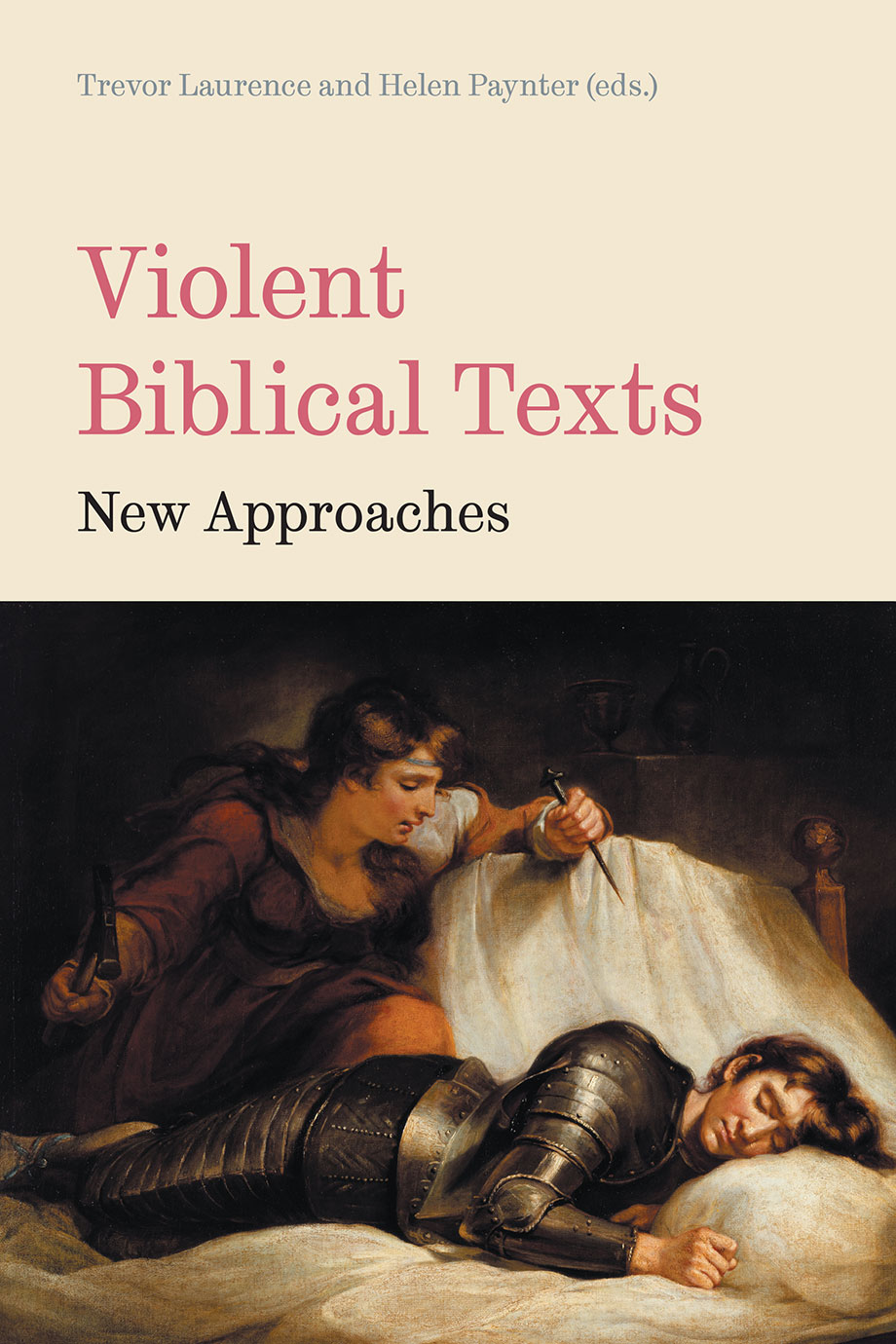

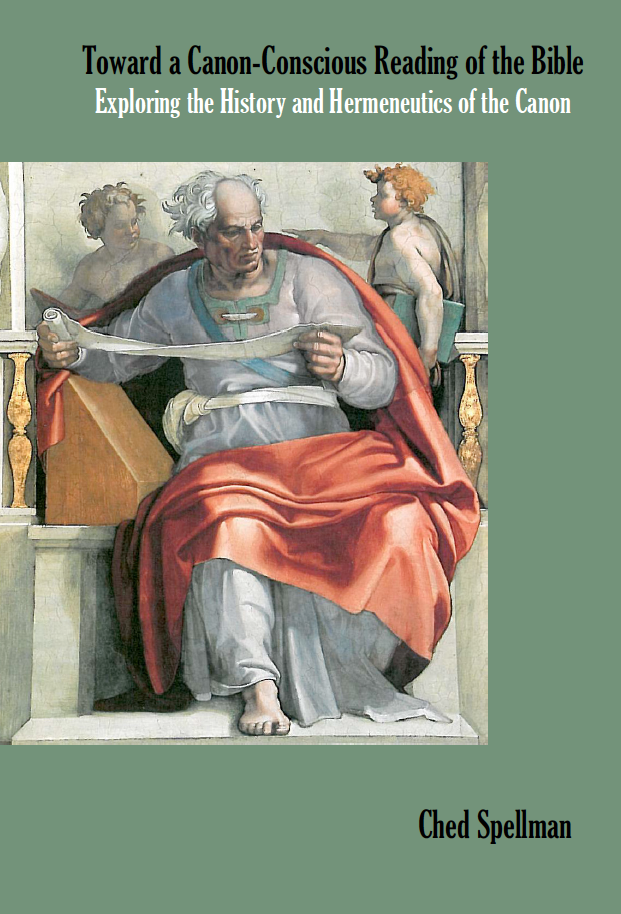
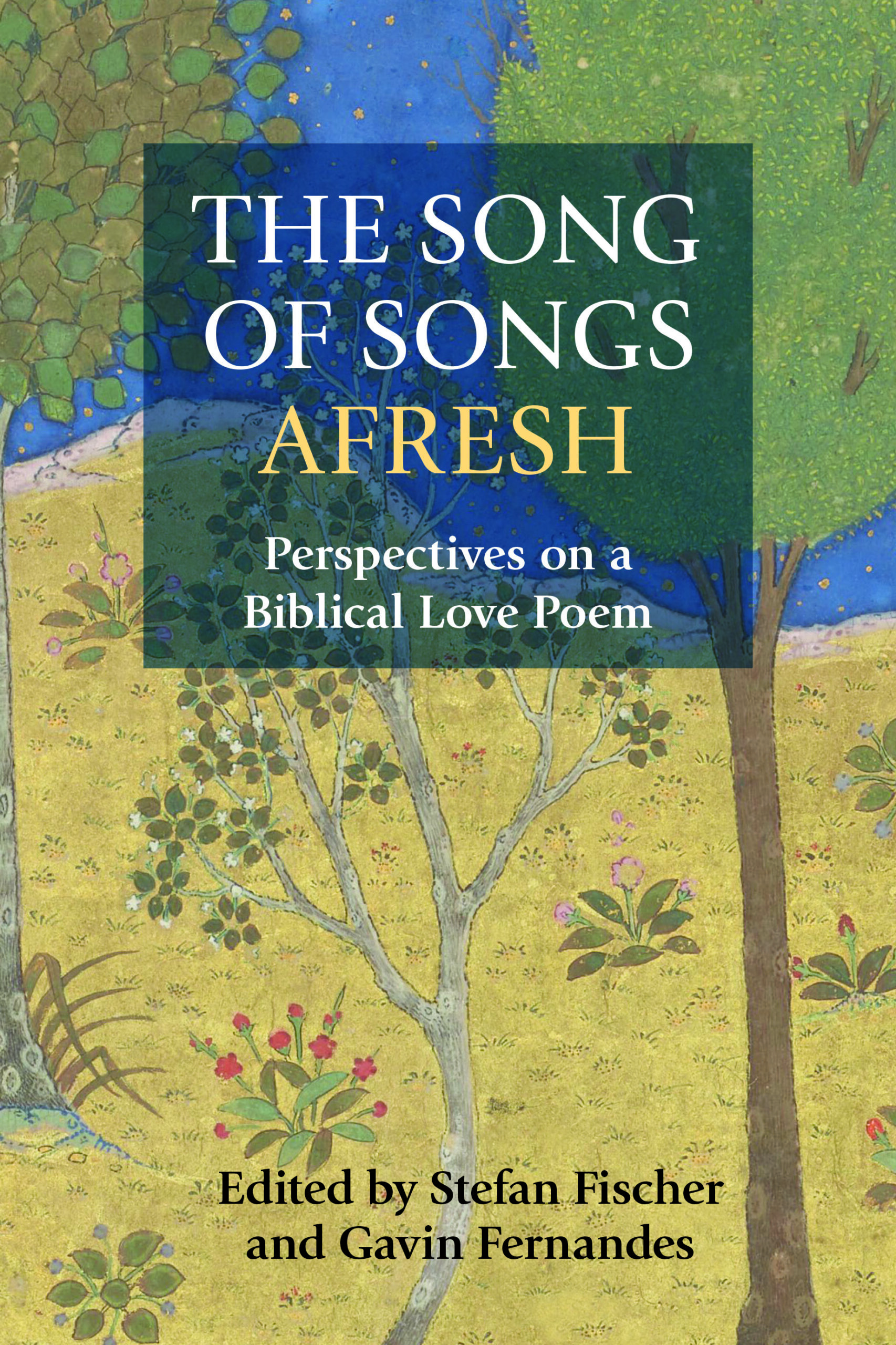
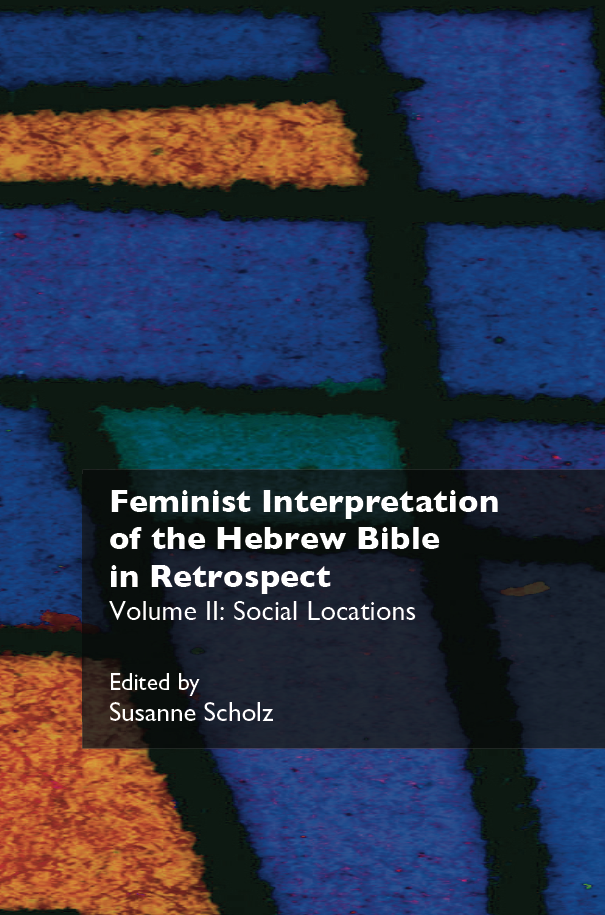

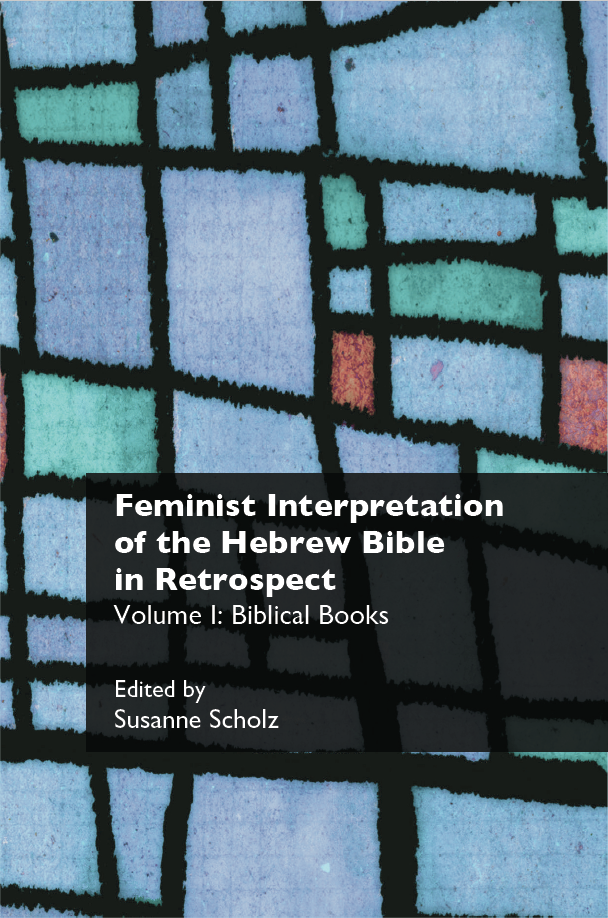
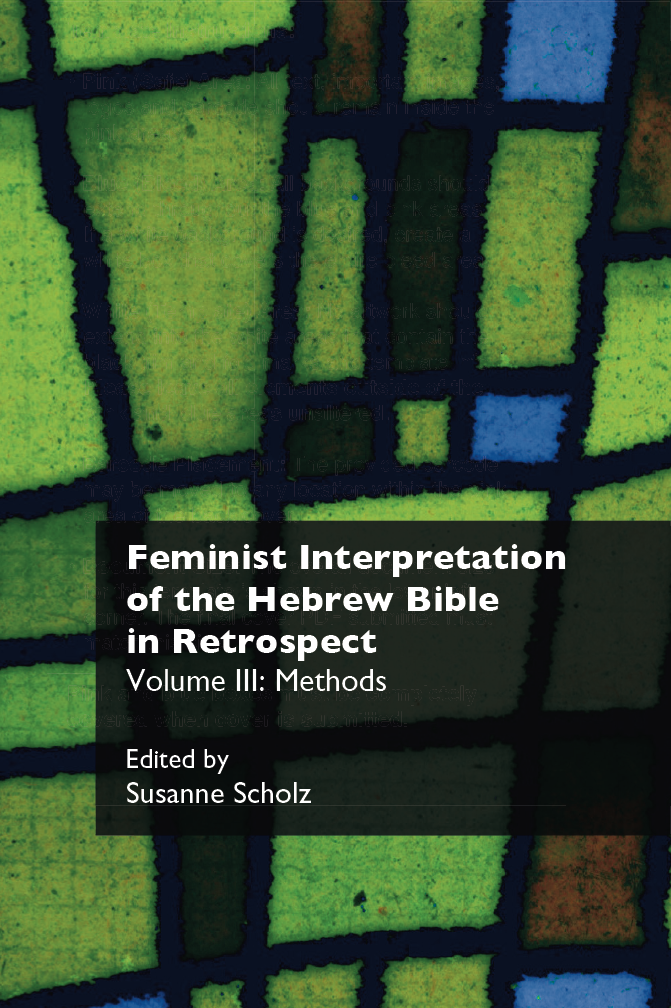


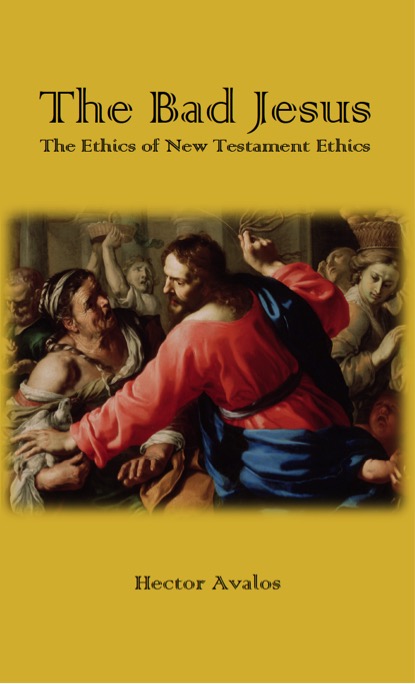
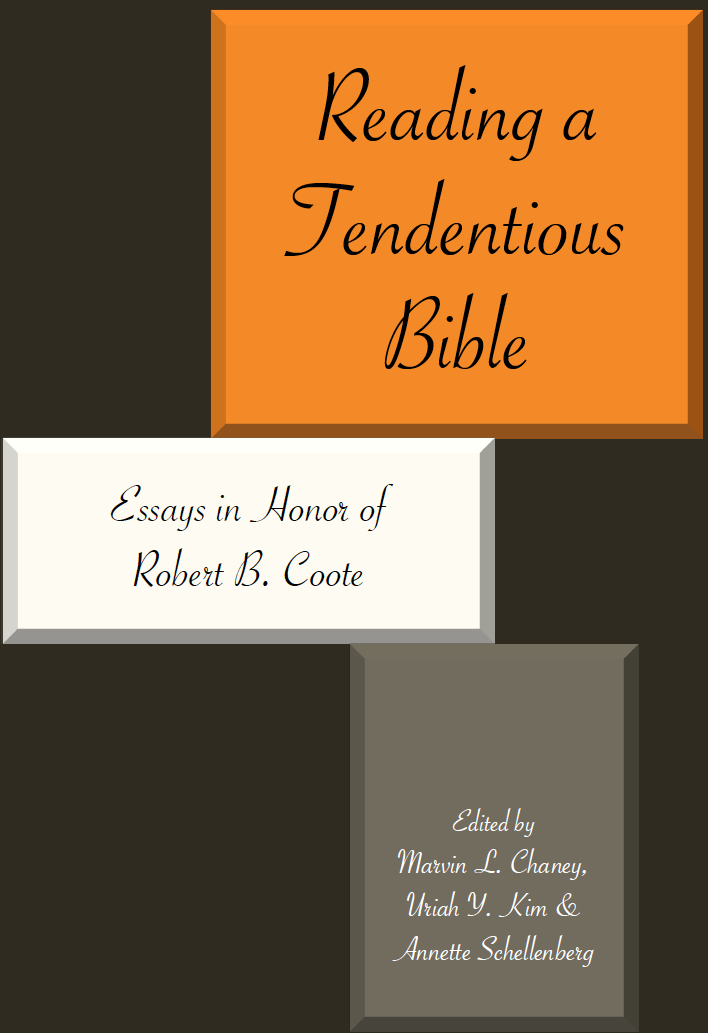

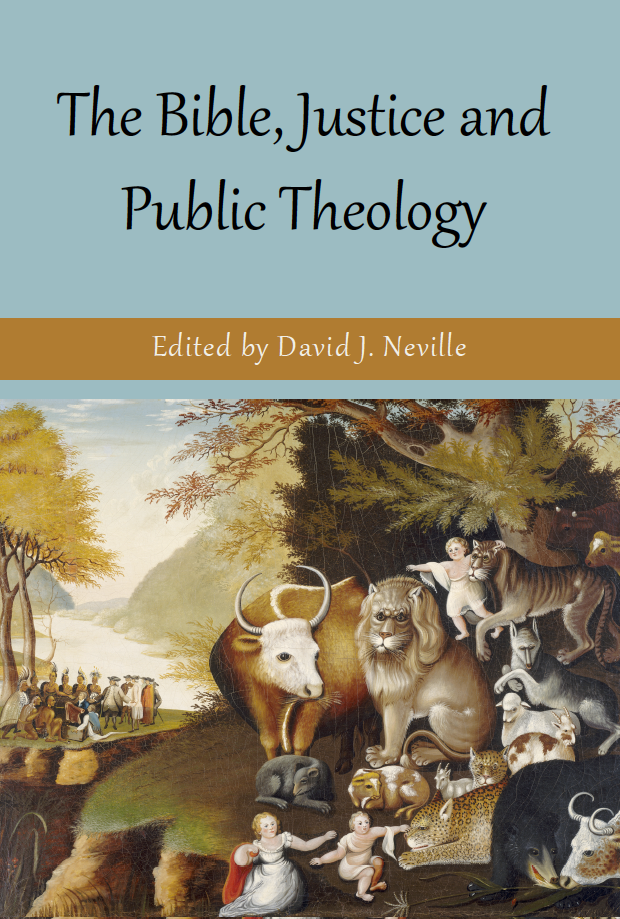
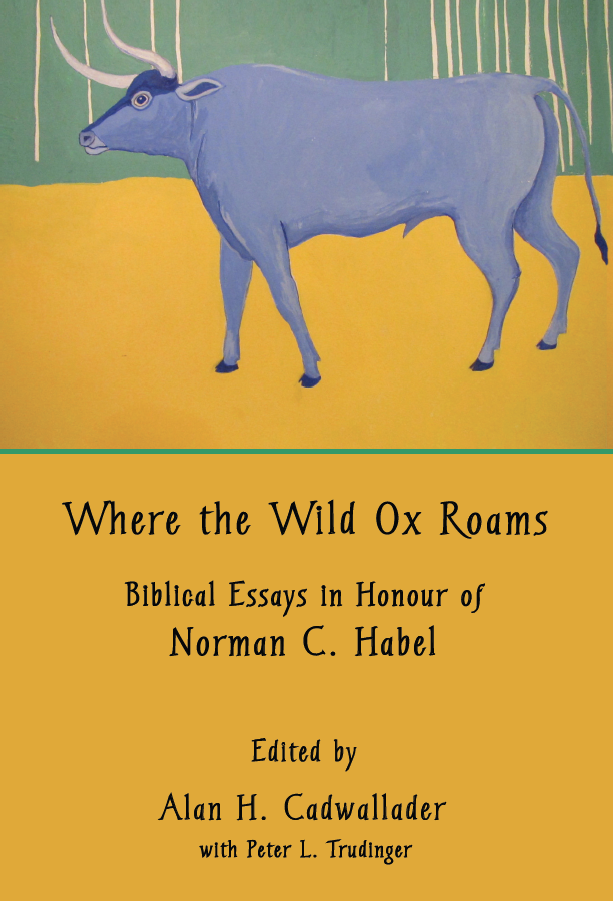
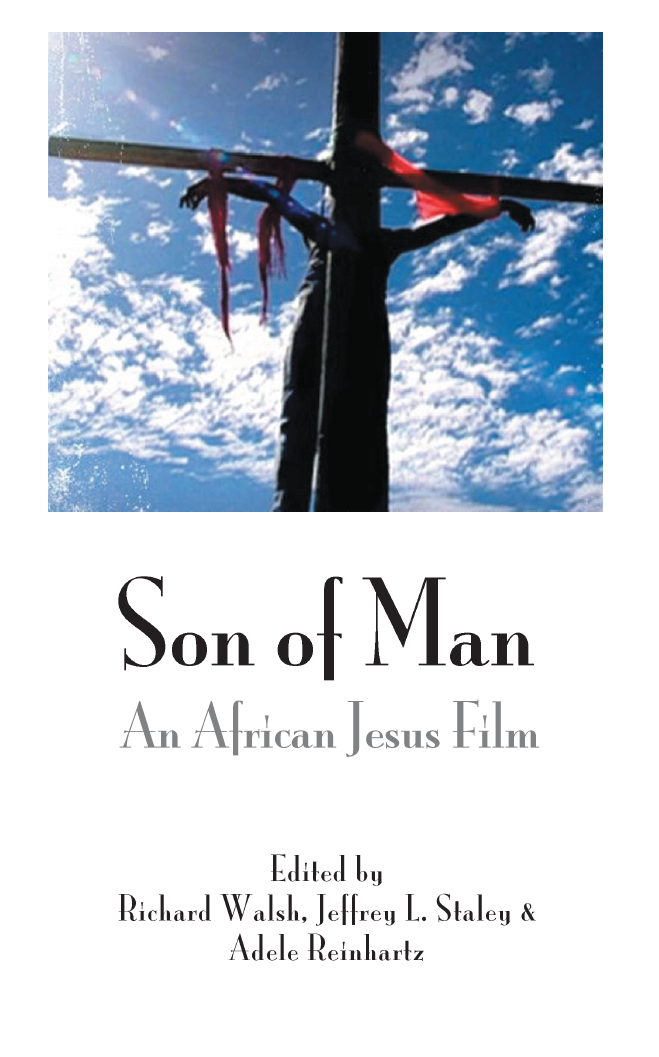

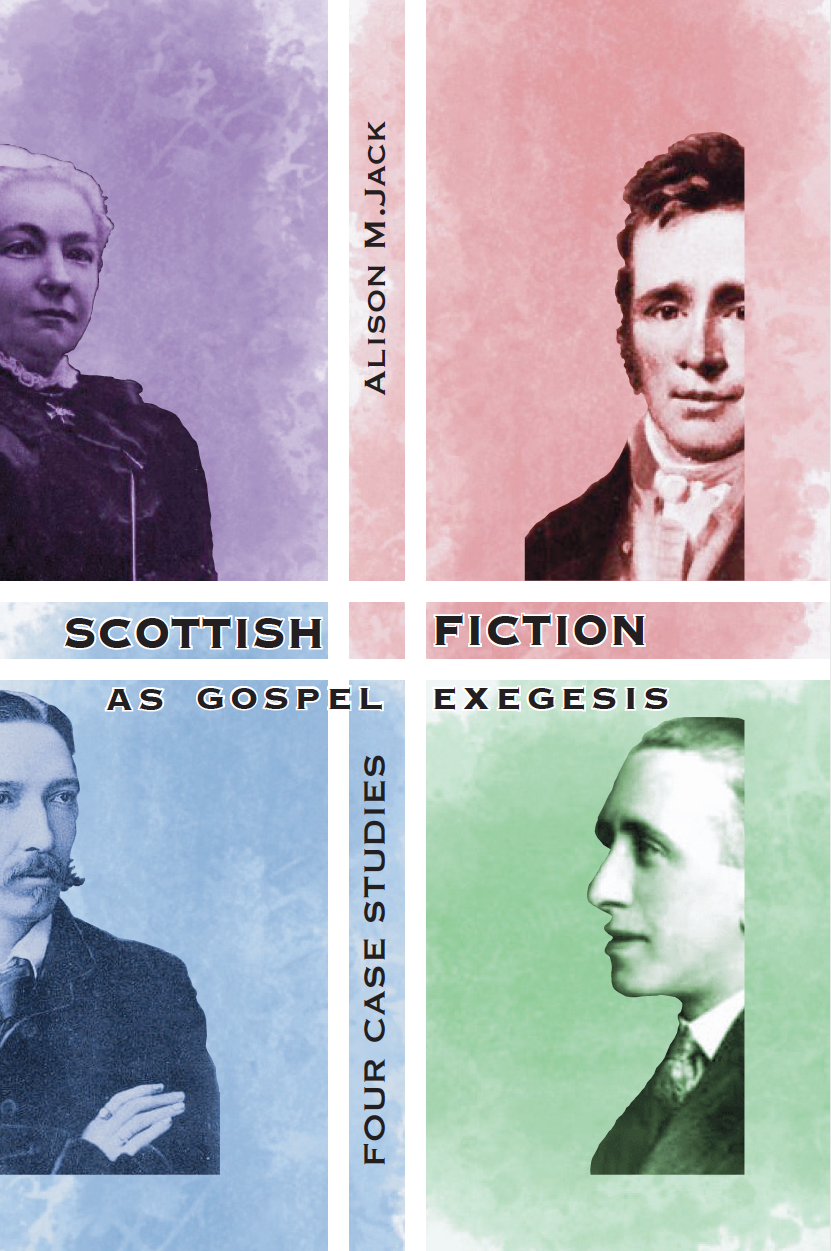
Habitat, Human, and Holy: An Eco-Rhetorical Reading of the Gospel of Matthew
Habitat, Human, and Holy: An Eco-Rhetorical Reading of the Gospel of Matthew